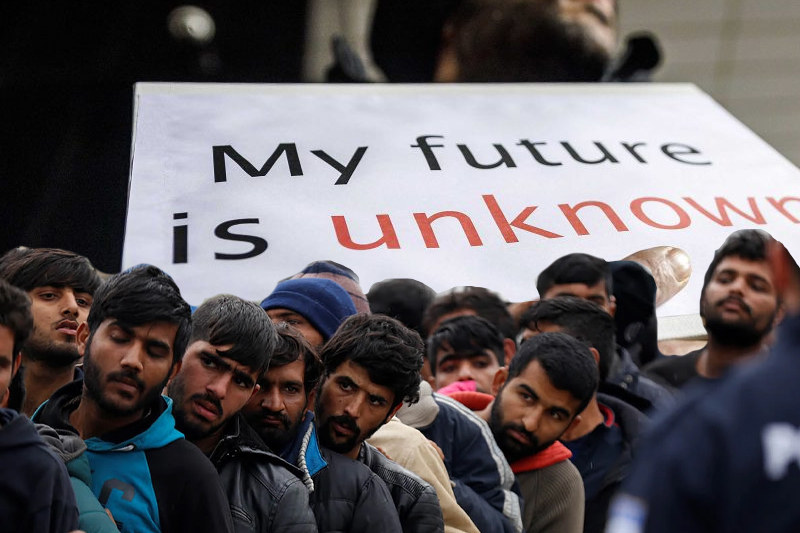
ngos, rights groups condemn migrants’ ‘mass expulsions’ from croatia
Since the end of March this year, hundreds of migrants and refugees have been sent back to Bosnia and Herzegovina from Croatia.
Different from the illegal pushbacks between 2018 and 2022 that saw scores of people being violently returned to Bosnia from Croatia, the recent operations involve cooperation between the two countries and open approval of European institutions.
While Croatia and Bosnia say the mass expulsions of migrants from the first to the second country are happening under a bilateral readmission agreement, NGOs, rights groups and a legal expert have raised legal doubts.
With the information gathered by direct testimonies and documents collected from the migrants and refugees sent back, the groups have warned against deteriorating treatment and human rights violations by the police in Croatia.
In addition to the abuses, experts have also voiced concerns over the procedure being potentially illegal. Italian jurist and migration expert Gianfranco Schiavone told BIRN: “There are some doubts over the legality of what we are seeing happening between [the two countries] in terms of European law.”
How well did Croatia respect people’s right to ask for asylum?
A few weeks after the first migrants and refugees were sent back to Bosnia, Mustafa Ruznic, Prime Minister of Una-Sana Canton, sent an open letter to Bosnia’s state security and foreign ministers, demanding an explanation for the return of a noteworthy number of people.
Ruznic said an alarming number of these migrants and refugees were unknown to the authorities and might pose security problems. Croatian and Bosnian authorities later responded that the procedure was being implemented under a bilateral agreement.
Keep Reading
A day after meeting Ruznic, Bosnia’s Minister of Security Nenad Nesic rejected a new possible crisis in Bosnia’s parliament on April 19. Presenting data for the first three months of the year, he said a total of 768 foreign citizens had been accepted back under the agreement between the two countries.
“Our Foreigners Service is responsibly doing its job and there is no influx of migrants into Bosnia and Herzegovina,” he added.
Sara Kekus, from the Centre for Peace Studies in Zagreb, who has been closely monitoring the situation with migrants, told BIRN that based on the testimonies of our organisations and volunteers present in BiH, the migrants and refugees returned from Croatia testified that they tried to seek asylum, but they were not allowed to do so.
Further elaborating, Kekus raised concerns over people there reportedly not having access to translators and being issued documents mostly in Croatian. He also highlighted complaints over unsatisfactory meals and people kept in detention for many days.
Adults were not the only people expelled, Kekus noted, adding the group included unaccompanied children and families with small children.
While the Border Violence Monitoring Network denounced the lack of translations and the fact that Croatian authorities didn’t respect the internationally guaranteed right to ask for asylum, the Croatian Ministry of Interior said “The BVMN report is not based on information about actual treatment.”









